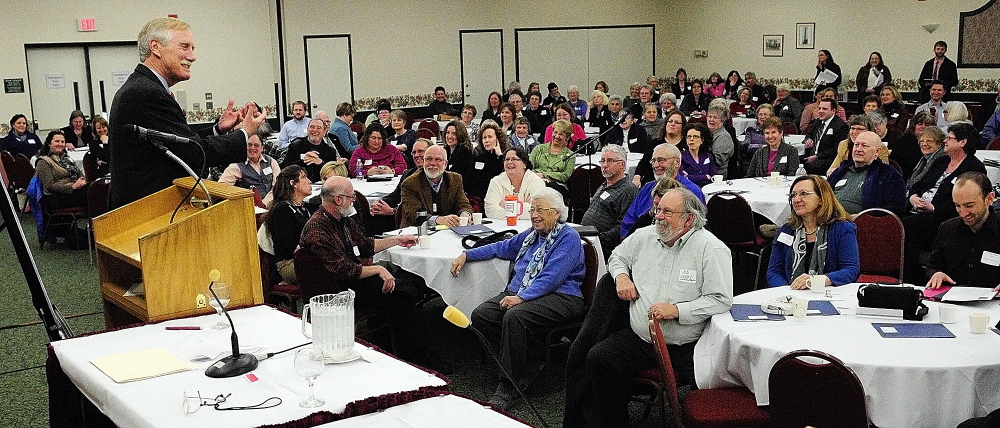Maine must increase funding for elder-care services to meet the demands of a rapidly aging population and develop a critical part of its workforce, according to an action plan released Thursday after a recent state summit on aging issues.
It’s one of several goals outlined in the “Blueprint for Action on Aging” report from the Maine Council on Aging that identifies key steps that should be taken to help improve seniors’ access to affordable housing, transportation, health care and jobs.
It has been more than a decade since Maine lawmakers increased Medicaid rates paid for home care services that help keep seniors out of nursing homes, according to the action plan. These jobs – helping seniors bathe, take care of their homes, get groceries – tend to offer low wages, minimal benefits and difficult working conditions.
Because Medicaid rates no longer cover costs, many home care agencies have stopped providing services in rural areas, the report says, just as there’s growing recognition that home care is often preferable to and much less expensive than institutional care.
“The system is about to collapse because nothing has been done for a decade to cover their costs,” said Jessica Maurer, council co-chairperson and executive director of the Maine Association of Area Agencies on Aging.
The action plan is part of a statewide aging initiative that will be led by the council and House Speaker Mark Eves, D-North Berwick. Together they hosted the Maine Summit on Aging on Jan. 17 at the Augusta Civic Center, where more than 370 Mainers gathered to help develop the action plan. The summit followed four smaller roundtable talks on aging issues that were held last fall.
The summit delved into a variety of challenges facing Maine because of its rapidly aging population. Maine is the oldest state based on median age (43.5 years) and the second-oldest based on the proportion of people 65 and older (17 percent), according to the U.S. Census. Florida is No. 1 with 18.2 percent.
Maine also has the nation’s highest proportion of baby boomers – 29 percent of its 1.3 million residents were born between 1946 and 1964 – and they’re turning 65 at a rate of 18,250 a year, according to AARP Maine. By 2030, more than 25 percent of Mainers will be 65 or older.
The action plan calls for a combination of community and legislative action.
“Our blueprint for action is focused on ensuring seniors can age with dignity in our communities,” Eves said in a news release.
“The plan is ambitious,” Maurer said. “It seeks to increase housing and transportation options, support older workers in the workforce, attract new workers to Maine, build a stronger collaborative response to the health care needs of older adults and address public safety issues.”
Here are some other action items:
• Change municipal zoning laws to encourage home sharing and multi-family living arrangements that enable older adults to remain at home.
• Work with developers, lenders and municipal leaders to create aging-friendly communities, including housing that meets the needs of seniors as well as families and shared child- and elder-care centers.
• Promote efficient, affordable energy and heating sources, weatherization programs and home repair services.
• Support transportation initiatives that benefit older Mainers living in rural isolation and community groups that offer transportation, home care, health and social services through vetted, low-cost providers.
• Provide education loan forgiveness for people who care for seniors or choose a career in home care.
• Build connections between first responders, health care providers and community organizations to better address the needs of older adults.
Eves will convene several working groups in early April that will tackle the priorities outlined in the action plan, according to the news release. The council will lead the work groups and collaborate with community and business leaders to accomplish identified goals.
The groups will begin meeting as members’ schedules allow. Initially, they will focus on actions that can be accomplished within six months to a year and with existing resources.
Kelley Bouchard can be reached at 791-6328 or at:
Twitter: KelleyBouchard
Send questions/comments to the editors.



Comments are no longer available on this story